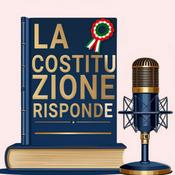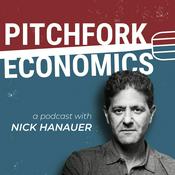221 episodi
- The group of people who have an interest in defending liberal democracy might be broader than many academics, and maybe even liberals, would have shown.
Kate Baldwin
This episode features Yale political scientist Kate Baldwin in a conversation about her book Faith in Democracy, which challenges the assumption that religion is inherently hostile to democratic governance. Drawing on research from sub-Saharan Africa, Baldwin explains how Christian churches have often emerged as defenders of liberal democracy – not because of ideological commitments, but because democratic institutions protect church autonomy and social service work from state overreach. The conversation explores when and why churches mobilize against democratic backsliding, how institutional incentives shape political behavior, and what this reveals about the broader coalition of actors invested in sustaining democracy.
The Democracy Paradox is made in partnership with the Kellogg Institute of the Keough School of Global Affairs at the University of Notre Dame.
Read the full transcript here.
Key Highlights
Introduction - 0:20
Why Churches Defend Democracy - 3:20
Role of Education - 14:09
Why Churches Choose Autocracy - 20:09
Leadership - 27:00
Links
Learn more about Kate Baldwin.
Learn more about her book Faith in Democracy: The Logic of Church Advocacy for Liberal Democratic Institutions in Africa.
Check out "Democracy's Devout Defenders" in the Journal of Democracy.
Learn more about the Kellogg Institute.
Support the show - You can take a cognitive bias so far down the road that you can live in an objectively very clear dictatorship and sit there and say, 'I live in a democracy.'
Natalie Wenzell Letsa
In this episode of The Democracy Paradox, host Justin Kempf speaks with political scientist Natalie Wenzell Letsa about why some voters genuinely support ruling parties in electoral autocracies. Drawing on her book The Autocratic Voter and fieldwork in Cameroon, Letsa explains how partisan identities form under dictatorship and what these dynamics reveal about democracy, polarization, and political behavior more broadly.
The Democracy Paradox is made in partnership with the Kellogg Institute of the Keough School of Global Affairs at the University of Notre Dame.
Read the full transcript here.
Key Highlights
Introduction - 0:20
What is an Electoral Autocracy - 3:20
Voters in an Autocracy - 12:55
Opposition in an Autocracy - 21:04
Parallels to Democracies - 30:31
Links
Learn more about Natalie Wenzell Letsa.
Learn more about her book The Autocratic Voter: Partisanship and Political Socialization Under Dictatorship.
Learn more about the Kellogg Institute.
Support the show - The heart of ungoverning is going after expertise - eradicating expertise - and replacing it with the power of the great ruler.
Russ Muirhead
Russell Muirhead is the Robert Clements Professor of Democracy and Politics and the co-director of the Political Economy Project at Dartmouth University. He's also the co-author, with Nancy Rosenblum, of Ungoverning: The Attack on the Administrative State and the Politics of Chaos.
Patrick McQuestion joins to help introduce the episode. Patrick is a PhD student in his fourth year at the University of Notre Dame studying political science and peace studies, and also the co-host of the Global Stage Podcast.
The Democracy Paradox is made in partnership with the Kellogg Institute of the Keough School of Global Affairs at the University of Notre Dame.
Read the full transcript here.
Key Highlights
Introduction - 0:20
What is Ungoverning? 9:00
The Fourth Branch - 32:29
Other Examples of Ungoverning 36:28
Ungoverning and Democracy - 46:59
Links:
Learn more about Russell Muirhead
Learn more about his book Ungoverning: The Attack on the Administrative State and the Politics of Chaos
Learn more about Patrick McQuestion
Learn more about the Kellogg Institute.
Support the show - Decreasing incumbent capacity and affective polarization are making incumbency salient, but also more of a curse than a blessing.
Luis Schiumerini
In this episode of The Democracy Paradox, host Justin Kempf speaks with Notre Dame political scientist Luis Schiumerini about his new book Incumbency Bias: Why Political Office is a Blessing and a Curse in Latin America. Schiumerini challenges common assumptions about incumbents, demonstrating that holding office can create systematic advantages – or disadvantages – depending on the institutional context. Before the conversation begins, Kellogg Doctoral Student Affiliate Tomás Gianibelli joins Kempf to share his experience working with Schiumerini and to explain why this research reshapes how scholars think about democracy.
The Democracy Paradox is made in partnership with the Kellogg Institute of the Keough School of Global Affairs at the University of Notre Dame.
Read the full transcript here.
Key Highlights
Introduction - 0:20
What is Incumbency Bias - 6:06
Incumbency Disadvantage on the Rise - 23:58
Term Limits - 31:39
Implications for Democracy - 36:52
Links:
Learn more about Luis Schiumerini
Learn more about his book Incumbency Bias: Why Political Office is a Blessing and a Curse in Latin America
Learn more about Tomás Gianibelli
Learn more about the Kellogg Institute.
Support the show - The biggest disappointment is that democracies do not reduce social and economic inequality.
Adam Przeworski
In this episode, host Justin Kempf talks with political scientist Adam Przeworski about what truly defines democracy today. Przeworski explains why he sees no global democratic crisis, defends a minimalist view centered on free and fair elections, and reflects on why democracies struggle to reduce inequality. He also discusses why citizens sometimes tolerate democratic erosion and how modern autocracies maintain support, offering a clear and concise perspective on democracy’s strengths and limits. Alejandro González Ruiz, cohost of the Kellogg Institute's Global Stage podcast, joins to help introduce the episode.
The Democracy Paradox is made in partnership with the Kellogg Institute of the Keough School of Global Affairs at the University of Notre Dame.
Read the full transcript here.
Key Highlights
Introduction - 0:20
Minimal Democracy and Democratic Crisis - 9:44
Economic Inequality and Democracy - 22:37
Autocracy and Popular Support - 31:42
Democratic Backsliding - 36:09
Links
Learn more about Adam Przeworski.
Learn more about his book Crises of Democracy (Cambridge University Press, 2019).
Learn more about Alejandro González Ruiz.
Learn more about the Kellogg Institute.
Apes of the State created all Music
Support the show
Altri podcast di Governo
Podcast di tendenza in Governo
Su Democracy Paradox
Is it possible for a democracy to govern undemocratically? Can the people elect an undemocratic leader? Is it possible for democracy to bring about authoritarianism? And if so, what does this say about democracy? My name is Justin Kempf. Every week I talk to the brightest minds on subjects like international relations, political theory, and history to explore democracy from every conceivable angle. Topics like civil resistance, authoritarian successor parties, and the autocratic middle class challenge our ideas about democracy. Join me as we unravel new topics every week.
Sito web del podcastAscolta Democracy Paradox, Leadership e gestione della complessità e molti altri podcast da tutto il mondo con l’applicazione di radio.it

Scarica l'app gratuita radio.it
- Salva le radio e i podcast favoriti
- Streaming via Wi-Fi o Bluetooth
- Supporta Carplay & Android Auto
- Molte altre funzioni dell'app
Scarica l'app gratuita radio.it
- Salva le radio e i podcast favoriti
- Streaming via Wi-Fi o Bluetooth
- Supporta Carplay & Android Auto
- Molte altre funzioni dell'app


Democracy Paradox
Scansione il codice,
scarica l'app,
ascolta.
scarica l'app,
ascolta.





















